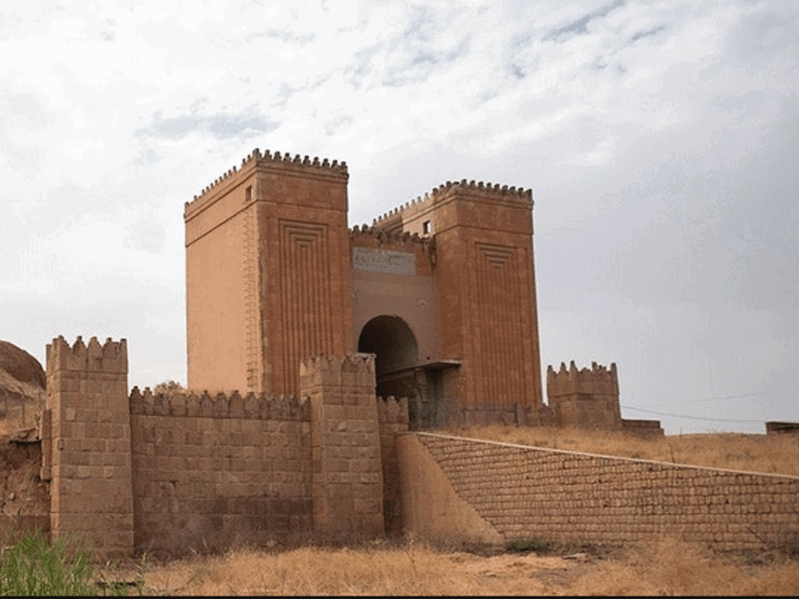
The Islamic State has destroyed a 2,000-year-old structure known as the "Gate of God" near Mosul as the terrorist group continues its campaign against religious imagery that it considers blasphemous.
Local activists in Mosul who spoke to the Kurdish news outlet ARA News revealed that the terrorists demolished the gate, also known as the "Mashqi Gate", using military equipment.
The ancient gate was one of many that guarded the biblical Assyrian city of Nineveh that dates back as far as the seventh century B.C. during the rule of Assyrian King Sennacherib.
A source at the British Institute for the Study of Iraq confirmed to The Independent that the gate had been attacked and condemned the heinous act.
"We naturally deplore all acts of vandalism and destruction of cultural heritage, and continue to monitor the situation to the best of our ability," the spokesperson from the British institute said. "In the absence of specific information it is not yet possible to comment on what has been destroyed."
Mosul, formerly home to thousands of Christians, has been occupied by ISIS since June 2014 and is considered to be the main stronghold for the terror group in the region. The recent destruction of the "Gate of God" is the simply the latest in a string of attacks on Christianity's heritage, which the jihadist group is steadily erasing from the Middle East.
In February, ISIS ransacked Mosul's library, burning more than 100,000 old books and manuscripts, some of which were recognized as historical rarities by Unesco.
In July, the group blew up Mother of Aid Church, which had stood in central Mosul for thousands of years, according to the Kurdish news site Rudaw. The blast also killed four children who were near the church at the time, Saeed Mamuzini, a spokesman for the Mosul arm of the Kurdistant Democratic Party told the news source.
In April, ISIS released disturbing photographs of its militants destroying ancient Christian graves with sledgehammers and carving out crosses in the ancient city. Earlier, the group also posted videos showing its militants using sledgehammers to destroy the tomb of the biblical prophet Jonah.
Along with the photos, the extremist group released a statement attempting to justify the destruction by arguing that the "graves above the ground suggested that the dead person was closer to Allah than the living, so must be demolished and any images on the graves must be erased."
"ISIS views tombs they destroy as sacrilegious and a return to paganism," Syrian antiquities chief Abdul Maamoun Abdulkarim told ARA News in an earlier report.
The militants have also destroyed the ancient Iraqi city of Hatra, a UNESCO World Heritage site, and sold priceless Christian relics and other items to fund their activity.
"These heinous acts... point to the material obliteration of history, of people's diversity and often a society's complex, multifaceted nuanced identity," writes Richard Kurin, the Smithsonian's Under Secretary for History, Art, and Culture.
"[ISIS] cynically loots and sell what they can carry off, using such treasures to help finance further destruction," he laments. "Cultural heritage...is under attack as a strategic pillar of extremist warfare. It is a war on civilization itself-whether that be Islamic, Jewish, Christian, Hindu or Buddhist, eastern, western or indigenous."






